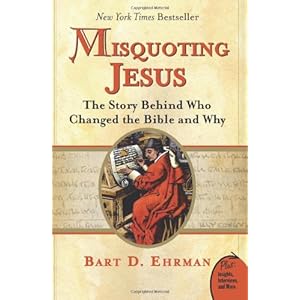- here I stand ? the introduction
- here I stand? part 2: scripture
- here I stand? part 3: gospel and salvation
- here I stand? part 4: mission
- here I stand? part 5: spiritual formation
- here I stand? reflection
Morality is a big issue for Christians today. In my country, at least, the perception of those outside the church is surely that Chrisitans are great moralizers - and probably hypocrites into the bargain. There's often the perception that those morals are rooted in the Iron Age, and wildly out of touch with the current language of rights and self-fulfilment.
And it must be said that there's more than a grain of truth there. Christians seem to hang onto a Victorian morality when the rest of society has thrown it away. And we have a propensity to imagine that the mores of the 19th century are in fact God's ideals. But it ain't necessarily so.
The Scripture gives us Christ's Golden Rule; it gives us all manner of good principles about how we should act towards each other. But it doesn't give us a whole lot of absolutes - we made many of those up. Or rather, we evolved them independently of scripture. A strong theology of marriage just isn't there. We made it up. Which might help to explain why the whole gay marriage thing has caused quite so much angst. How do two people become married? What "can't you do" before marriage? Who says so? The whole "gay community" thing is of course a political construction. The society of biblical times didn't recognise gayness as a state of being - nor have most other societies. But attitudes to same-sex relationships have been much more complex, ambivalent, often tacitly accepting, through the ages.
Most (much?) (all?) of morality is a social construction. We need morals in order to live harmoniously together - and to my mind morality is a better notion than rights, because it tends to embody mutual obligation rather than naive individualism. Few morals are absolutes: they evolve, and difficult cases cause adjustments. The morality - or ethics - surrounding developments in reproduction (from IVF, through sperm donation, frozen embryos, all the way to cloning, embryo selection, and many things we haven't thought of yet) raises profound questions for which there is no trite answer within the moral framework of former generations. [Court cases in which a divorced man withdraws his consent for a fertilized embryo being implanted in his erstwhile wife's womb - her ovaries having been removed in the meanwhile - spring to mind. A rare instance of the "man's right to choose"?] As medical technology advances, there will be more and more of these questions: and if Christians flee from them they will be perceived (rightly, I think) as being as out of touch as they now view the Jehovah's Witnesses for refusing blood transfusions.
Are there no absolutes? Well, I'm doubtful. I don't imagine that we are ever going to come out on the side of being allowed to shoot one another on a whim, but "ye shall do no murder" clearly admits a lot more nuances than one might first imagine. Debates around just war, capital punishment, abortion, and euthanasia have illustrated some of the complexities.
We need morality and ethics, and they will continue to evolve. It's a shame that Christians are seldom in the forefront of the development of these. Arguing for the right to discriminate isn't very helpful. Arguing for the right to be abusive or to lay heavy burdens on the most vulnerable is not necessarily in keeping with the Golden Rule. Would that Christ-followers were know for their compassion, for a caring attitude to fallen, broken humanity; would that our watch-word was "let the one who is without sin cast the first stone".
